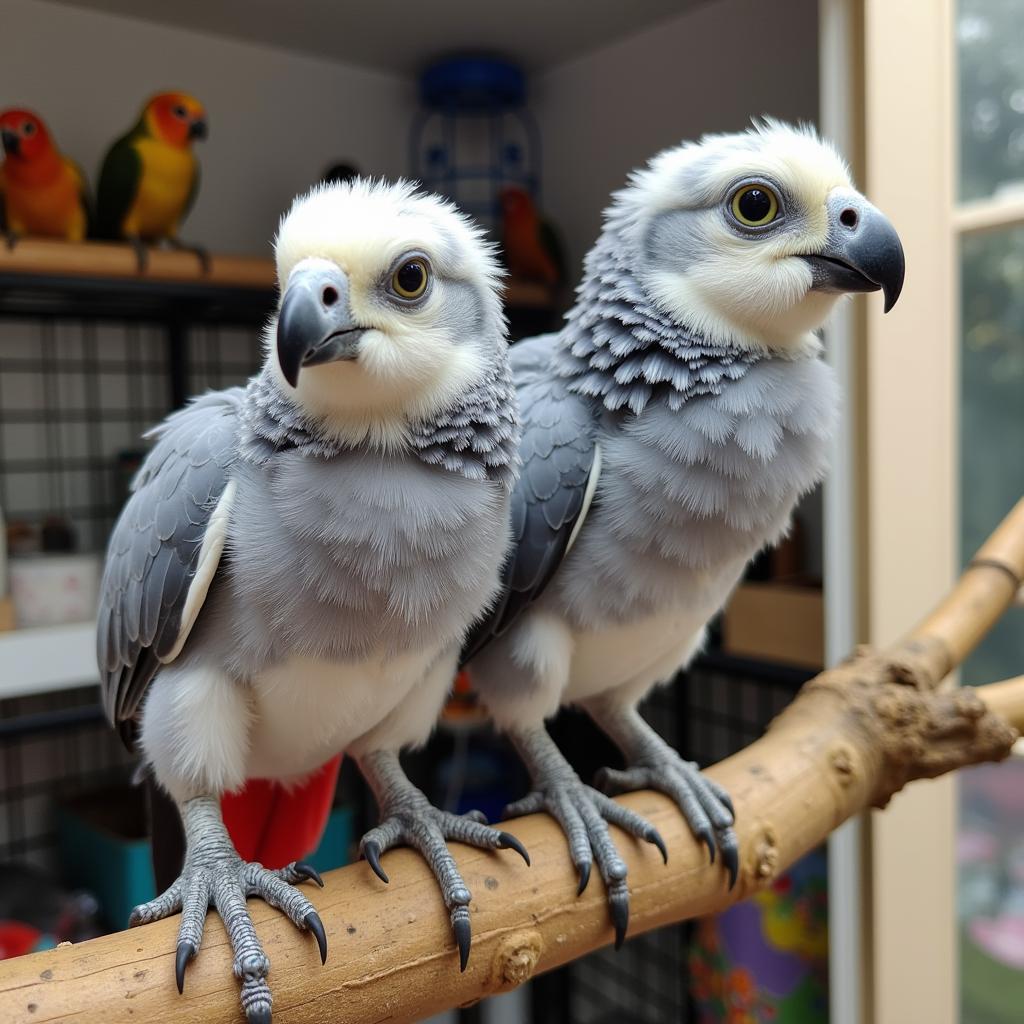The Intriguing Genetic Tapestry of Africa: Exploring the Continent’s Diverse Heritage
Africa is a continent brimming with life, culture, and history. This vibrant tapestry of human experience is also reflected in its astounding genetic diversity. The continent boasts an unparalleled range of human genetic variations, making it a treasure trove for scientists studying human evolution and origins. Today, we delve into the captivating world of African Genetic Diversity, unraveling the secrets hidden within our genes.
A Continent of Diversity: Understanding African Genetic Heritage
The genetic landscape of Africa is incredibly rich and complex. This is primarily due to the continent’s long history of human habitation. Africa is considered the cradle of humanity, with the earliest hominids emerging from this region. Over millions of years, diverse human populations evolved, adapted to different environments, and spread across the continent. This process created a remarkable genetic mosaic, with unique variations thriving in various geographical areas.
The Significance of African Genetic Diversity for Science
Understanding African genetic diversity is crucial for multiple scientific disciplines. For example, it allows researchers to:
- Trace Human Evolution: By comparing genetic variations across different populations, scientists can reconstruct the evolutionary journey of humankind, identifying key migration patterns and genetic relationships.
- Uncover Disease Susceptibility: Certain genetic variations are associated with higher susceptibility to specific diseases. Studying these variations in African populations can offer valuable insights into disease susceptibility patterns and help develop personalized medicine.
- Identify Genetic Markers: Studying African genetic diversity has the potential to uncover unique genetic markers, crucial for identifying disease-causing mutations and developing more effective therapies.
The Impact of Human Migration on African Genetic Landscape
Human migration has played a pivotal role in shaping the genetic tapestry of Africa. Over centuries, people moved from one region to another, carrying their unique genetic signatures. These migrations resulted in a complex interplay of genetic flows, creating intricate patterns of genetic diversity across the continent.
Dr. Amani Kamau, a renowned geneticist, explains: “Understanding migration patterns within Africa is key to unlocking the secrets of its genetic diversity. It reveals how different groups interacted, shared genes, and shaped the unique genetic makeup of modern populations.”
The Role of Natural Selection in African Genetic Diversity
Natural selection, the process by which organisms best adapted to their environment survive and reproduce, has also left its mark on the genetic landscape of Africa. For instance, individuals living in malaria-prone areas have developed genetic variations that offer some resistance to this deadly disease. This adaptation illustrates how natural selection has shaped the genetic diversity of specific populations, allowing them to thrive in challenging environments.
Dr. Kofi Annan, a leading anthropologist, sheds light on this phenomenon: “Natural selection has been a powerful force in shaping the genetic diversity of Africa. It is evident in the remarkable adaptations of populations to varied climates, diseases, and ecological niches.”
The Future of African Genetic Research
The exploration of African genetic diversity is a fascinating and ever-evolving field. Technological advancements are continuously refining our understanding of the human genome, allowing for even more detailed and precise analysis of genetic variations. This research promises to unlock invaluable insights into human evolution, disease susceptibility, and personalized medicine, ultimately benefiting both African populations and the global scientific community.
Frequently Asked Questions:
1. What makes African genetic diversity so unique?
African genetic diversity is unique because of the continent’s long history of human habitation, diverse environments, and complex migration patterns.
2. How does studying African genetic diversity contribute to personalized medicine?
It helps identify genetic markers linked to specific diseases, allowing for more accurate diagnosis and personalized treatment plans.
3. What are some ethical considerations in African genetic research?
It is essential to ensure informed consent, data privacy, and equitable benefits for participating communities.
4. What are some ongoing research projects focusing on African genetic diversity?
Several projects are exploring the genetic basis of disease susceptibility, mapping ancient migration routes, and uncovering the evolution of human populations across the continent.
5. How can I learn more about African genetic diversity?
You can explore academic journals, scientific websites, and documentaries dedicated to this fascinating field of study.
6. What resources are available to learn about African genetic diversity?
Several institutions and organizations conduct research and provide resources on African genetics, including the African Academy of Sciences, the African Society of Human Genetics, and the National Institutes of Health (NIH).
7. How can I contribute to the study of African genetic diversity?
Support research initiatives, engage with educational resources, and share information about the importance of this field.
The genetic tapestry of Africa is a testament to the remarkable diversity of our species. By understanding this rich heritage, we gain valuable insights into human history, evolution, and the complex interplay between genes and environment. As we delve deeper into this intricate world, we unlock the secrets of our past and pave the way for a healthier future.

